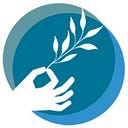Member-only story
The Lost Art of Peacemaking
By David Harland
For 20 years after the Iran-Iraq war ended in 1988, most armed conflicts were resolved by agreement — with life-saving results. No longer. The United Nations, in particular, has almost lost an art it once mastered.
The UN led the way ending wars from Lebanon to Liberia, Croatia to Cambodia. Its diplomacy was personalised, discreet, neutral and deeply informed. Others played a role too: the US brokered peace in Bosnia (1995) and Northern Ireland (1998); the Centre for Humanitarian Dialogue (HD) mediated an end to violence in Aceh, Indonesia (2002 & 2005).
Yet since 2008, the number of successful mediations has declined.[i] Failures are stacking up — Sri Lanka, Libya, South Sudan, Yemen, Syria. Non-UN actors have scored some successes, but they cannot replace the UN.
Why the decline? Structural reasons are key. The world’s most powerful countries are mired in geopolitical wrangling — Russia with the West, China with the US. Proxy wars, in Syria, Ukraine and Somalia, are back. Conflicts are more atomised. The “Twitter revolutions” in the Arab world and beyond challenge peacemakers with their proliferation of players and agendas.[ii] “Internationalised internal conflicts” have surged,[iii] as jihadis use technology to recruit foreign fighters and transboundary trafficking to resource operations.[iv]
Also important, however, is the erosion of the UN’s peacebroking skills. Four missing factors stand out:
1. Political independence: the good faith of the UN’s mediation efforts has been under increasing strain since the mid-1990s.
2. Open approach: the UN’s appetite to engage all parties to the conflict has waned, reducing inclusion and openness.
3. Discretion: UN mediations, previously often secret, are now less discreet, owing to politics and technology.
4. Agility: earlier UN envoys had a small staff, but today’s “special political missions” include numerous advisers, each with a budget and interests to pursue.[v]
The UN-led “Geneva process” on Syria, for example, involves no substantial participation by the Syrian government or the leading Kurdish party.[vi] Its Special Envoy is under constant media scrutiny; its mediation process is mired by a plethora of players.[vii]
The UN retains an important global mandate to reduce armed conflict. But more than ever, there is a role for…
